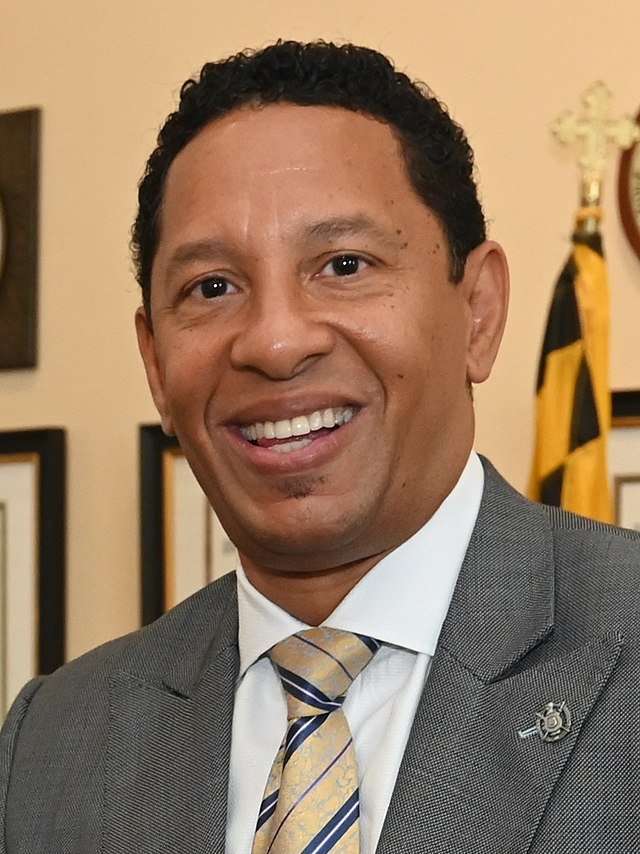Traditional Prosecutors Take Charge: Ivan Bates’s Story
The attempt to reform prosecutorial practices has unfortunately backfired in many regions. Communities disintegrated, criminal activities spiked, commerce retreated, and residents were left feeling insecure. In reaction to this disruption to public safety, many voters are expressing their disapproval by electing more Traditional Prosecutors. These legal practitioners pledge to adopt a stricter approach to crime and reinstate stability in society. This series aims to spotlight some of these newly elected officials who are adamant about triggering positive change. The first part focuses on the situation in Baltimore.
Ivan Bates, Baltimore County State’s Attorney, took over two years ago from Marilyn Mosby, his predecessor known for her progressive prosecutorial ideologies. Mosby, similar to other prosecutors in favour of systemic reform, manipulated legal mechanisms to tip the balance of justice to seemingly favour wrongdoers, justifying this as a necessary part of reshaping the system. This leniency, however, backfired tremendously.
The effects of her policies led to rising crime rates and a decrease in public safety. Mosby’s initial political strategy was to overlook certain types of crime while also advocating for lenient sentences for some violent criminals. During Mosby’s tenure, homicides rose beyond 300 annually, labeling Baltimore as one of the most perilous places in the nation.
Bates, formerly a defense attorney, vividly remembers his experiences during this time. In frank discussions about his previous role, he highlighted the numerous issues he encountered within this setup, which motivated him to step into the political arena. At heart, Bates designates himself as ‘sensible about criminal activity’ and had previously contested Mosby in 2018, but tasted success only when he challenged her four years later.
Bates camapigned on the promise to address gun-related violence head-on and to reinstate convictions for nonviolent offenses like drug possession, solicitations, and illegal entry. He spoke about implementing advancements in office technology, nurturing a larger workforce, and fostering a close relationship with federal law enforcement. If a person was found in possession of a weapon, Bates pledged to take stringent action.
In his initial two years, Bates’s term saw the conviction and incarceration of 1,723 individuals for a non-parole period of five years due to illicit firearms. His office also successfully convicted 271 individuals for homicides during the same period. Altogether, Bates’s team removed 2,129 violent perpetrators from public spaces in the span of two years, indicating his unwavering commitment to restoration of law and order.
The upshot of Bates’s steady and determined efforts has been a marked decrease in the homicide rate in the city, a measure of the effectiveness of his approach. Bates acknowledges that his evolution from a high schooler with mediocre grades, to an Army serviceman, to a defense attorney, all contributed to his formulation as the public servant he is today.
As part of the 32nd Army Air and Missile Defense Command, Bates performed his duties as a mechanic. As fate would have it, it was a conversation with a sergeant-major, a Vietnam War veteran, that highlighted for him the importance of education. After his military service, Bates pursued his college education at Howard University, graduating with a degree in journalism.
Following his undergraduate studies, Bates went on to get his legal education at William & Mary Law School and achieved his law degree in 1995. On his first attempt, he successfully passed the bar examination. One of the crucial junctures in his career materialized when he defended Alicia White, one of the police officers implicated in the 2015 death of Freddie Gray, a young black man, which triggered a series of city-wide protests.
While Mosby had levelled charges against all six police officers connected with Gray’s death, she wasn’t successful in securing any convictions. This incident played a pivotal role in reinforcing Bates’s commitment to his profession, reminding him of his initial motivations to become a lawyer. Shortly after, Mosby found herself entangled in legal controversies of her own.
In 2022, Mosby faced federal indictments on two counts of perjury. By May 2024, she was declared guilty of falsifying her personal financial details. Though she didn’t serve jail time, Mosby pleaded guilty to perjury in November 2023. Furthermore, she was convicted on a federal level for submitting a fraudulent mortgage application.
As Bates’s first term advances towards completion, he was asked about his further political ambitions. While he left the future open-ended, he confirmed his intention to run for a second term in another two years.

